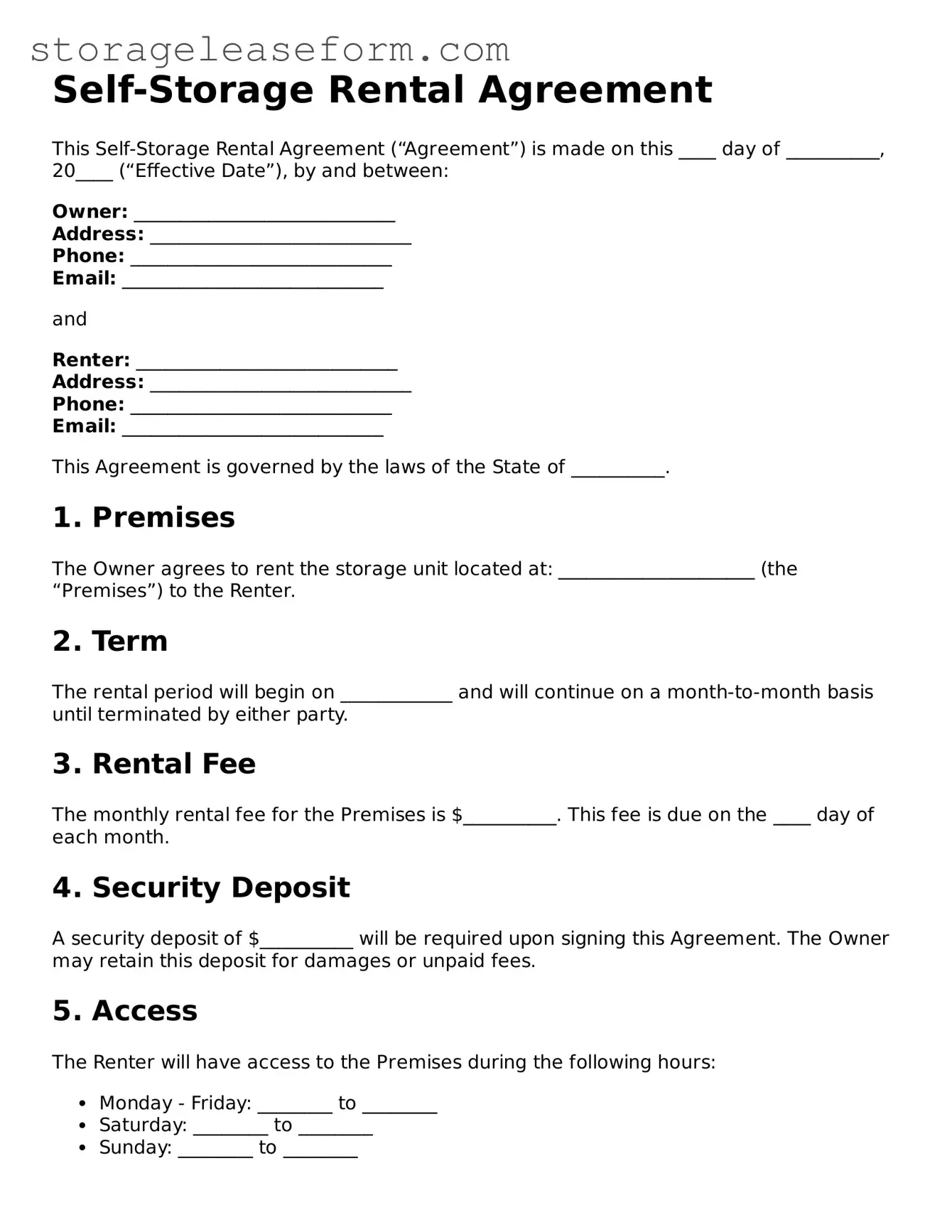Self-Storage Rental Agreement
This Self-Storage Rental Agreement (“Agreement”) is made on this ____ day of __________, 20____ (“Effective Date”), by and between:
Owner: ____________________________
Address: ____________________________
Phone: ____________________________
Email: ____________________________
and
Renter: ____________________________
Address: ____________________________
Phone: ____________________________
Email: ____________________________
This Agreement is governed by the laws of the State of __________.
1. Premises
The Owner agrees to rent the storage unit located at: _____________________ (the “Premises”) to the Renter.
2. Term
The rental period will begin on ____________ and will continue on a month-to-month basis until terminated by either party.
3. Rental Fee
The monthly rental fee for the Premises is $__________. This fee is due on the ____ day of each month.
4. Security Deposit
A security deposit of $__________ will be required upon signing this Agreement. The Owner may retain this deposit for damages or unpaid fees.
5. Access
The Renter will have access to the Premises during the following hours:
- Monday - Friday: ________ to ________
- Saturday: ________ to ________
- Sunday: ________ to ________
6. Responsibilities
The Renter agrees to:
- Keep the Premises clean and in good condition.
- Notify the Owner of any damages or issues immediately.
- Remove all personal belongings at the end of the rental period.
7. Termination
Either party may terminate this Agreement by providing written notice of at least 30 days.
8. Governing Law
This Agreement shall be governed by and construed in accordance with the laws of the State of __________.
9. Signatures
By signing below, both parties agree to abide by the terms of this Agreement.
Owner Signature: _________________________
Date: ___________________
Renter Signature: ________________________
Date: ___________________
